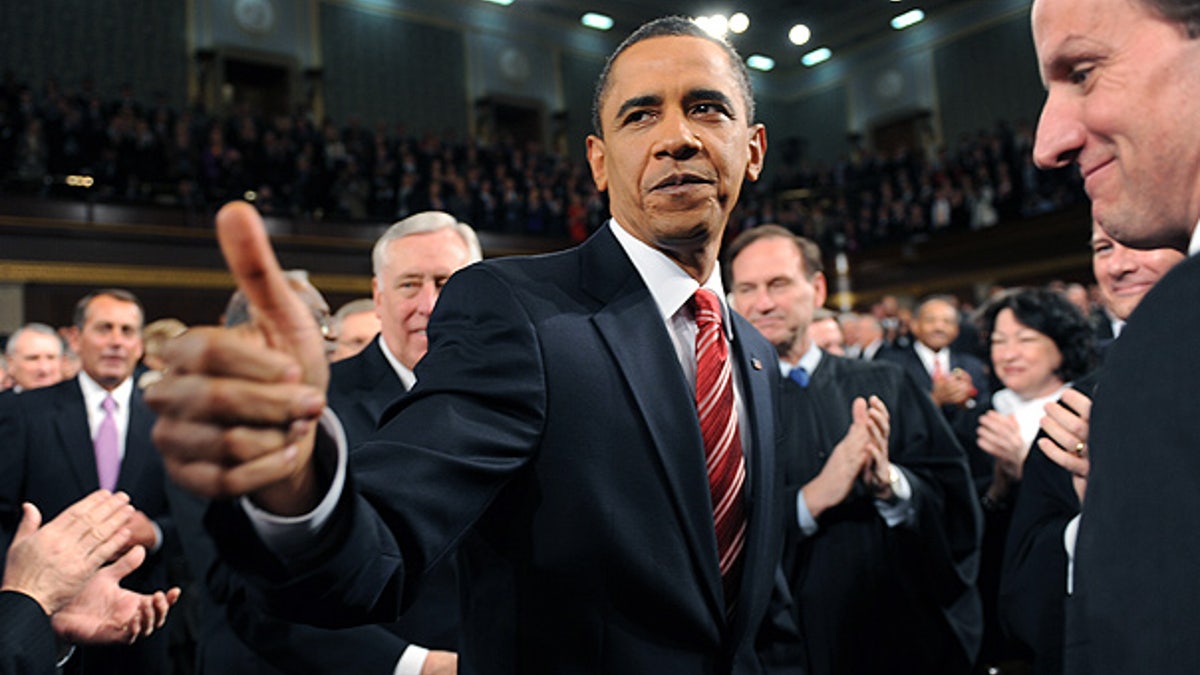
Jan. 27: President Obama greets members of Congress on his way to deliver the State of the Union. (AP)
Congressional aides are preparing to slog through an expected $3.8 trillion in spending to be proposed by President Obama on Monday when his fiscal year 2011 budget is delivered to Capitol Hill.
Sources tell Fox News the proposed budget predicts the national deficit will crest at a record-breaking $1.6 trillion in the current fiscal year, then start to recede in 2011 to $1.3 trillion, then to $700 billion in 2013.
Still, the administration's new budget to be released Monday says deficits over the next decade will average 4.5 percent of the size of the economy, a level which economists say is dangerously high if not addressed, said the congressional official.
The 2,000-page, 10-pound book, which retails to the public for $37 a pop, is a blueprint for spending that is likely to include requests for more money for education, $25 billion more for cash-strapped states, increased spending for the National Institutes of Health, the Energy Department, the National Science Foundation and the Census Bureau, which this year is conducting its decennial count of people living in the United States.
The president is also proposing to cut back or eliminate 120 government programs, including projects by the Army Corps of Engineers and NASA's plan to return astronauts to the moon.
It puts a three-year freeze on discretionary spending outside defense. That excludes the fastest growing parts of the budget -- entitlements like Social Security, Medicare and Medicaid as well as national security.
The president will outline some steps tomorrow, including freezing nondiscretionary spending -- spending that since 1995 has almost doubled in our federal budget," White House Press Secretary Robert Gibbs said on CNN on Sunday.
According to the White House, the freeze would be $250 billion over a decade if those programs were to increase at the rate of inflation.
"I think the presidents proposal on freezing non-security domestic spending is a good first step, but its only $15 billion for each of the next three years, I think we can do much better than that," House Minority Leader John Boehner, R-Ohio, told NBC's "Meet the Press."
Rep. Paul Ryan, R-Wis., said the spending freeze shouldn't wait a year.
"It's the rhetoric of fiscal discipline but the policy of the opposite," he told "Fox News Sunday."
The Associated Press and Fox News' Caroline Shively and contributed to this report.




